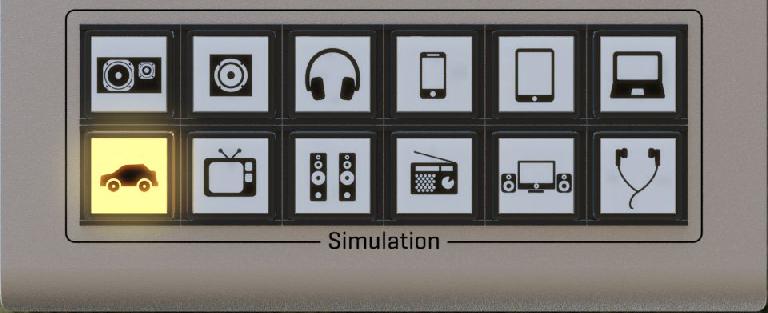Here’s a fairly common scenario. You’ve spent ages mixing a track on some expensive studio monitors and it sounds great. But when you listen to it on your phone using earbuds, it sounds different. Maybe there’s not enough bass, or the vocals are too loud. Mixing (and mastering) music to sound good on all target devices has always been the aim of the producer, but the range of playback devices out there is wider than it’s ever been. So what we’ve had to do is physically transfer music to these devices—burning CDs to play in the car, hooking an iPod up to some hi-fi speakers—to find the deficiencies in the mix. Then, go back, tweak the mix, and repeat until it’s right. As you can imagine, this takes a lot of time and effort.
MixChecker gives you a clever way to save a good deal of time and effort.
Check it Out!
MixChecker from Audified aims to greatly reduce the amount of time spent fiddling about with the process of testing your mixes on different music devices. This deceptively simple plug-in can be inserted across the master buss of a project during mixing or mastering and used to simulate reproduction on several different types of device. The company has measured the frequency response and behavior of various types of speakers and headphones and captured them inside twelve presets that can be punched in to model the playback hardware.
There’s also another layer of emulation available, since the speakers you are working on may not themselves have an entirely flat frequency response. As such you can punch in “compensation” for 5- or 8-inch speakers, or headphones. Or if your monitors are pretty good, leave compensation switched off.
Watch MixChecker in action:
There aren’t really any controls as such, bar switching presets and I’d guess what’s happening is some clever EQ and perhaps transient shaping. Your sound is being processed, so it’s important to remember to remove or bypass the effect before you actually export the track. With the possible exception of classic Yamaha NS10s, the models are all by definition a kind of “average” of the response of a type of device. Car stereos are all different, as are laptop speakers, earbuds and so on. And frankly trying to model thousands of types of earbuds would be pointless. So you get a good approximation of headphones, mini hi-fi speakers and so on.
MixChecker removes the hassle of physically playing music back on lots of different systems to try to find a good balance of fidelity across a wide range of devices.
The Verdict
Mixing and mastering has always been about finding a balance of good fidelity across a range of devices, and MixChecker removes the hassle of physically playing music back on lots of different systems to try to achieve this. You’ll still need to tweak your mixes—a bit less mid in the vocal because it leaps out too much on iPad speakers and so forth—and it’s a process of refinement, like mixing always has been.
If you mix a lot, however, you will definitely save time auditioning different hardware systems by using MixChecker. Any plug-in of this type is always going to have a finite number of models, since there are literally millions of potential playback combinations in the world and it’s impossible to model them all. But MixChecker gives you a clever way to save a good deal of time and effort. A 30-day trial version is available on the website.
Price: $149
Pro: Solves a real, time-consuming problem. Much easier than burning CDs and taking them to different places. Compensation for your own monitor setup is useful. Will help you mix for the multiplicity of playback devices out there.
Con: Most models are by definition an “average” of a kind of device, so you’ll still need to put the effort in to get the perfect mix for multiple devices.
Web: www.audified.com





 © 2024 Ask.Audio
A NonLinear Educating Company
© 2024 Ask.Audio
A NonLinear Educating Company
Discussion
Want to join the discussion?
Create an account or login to get started!